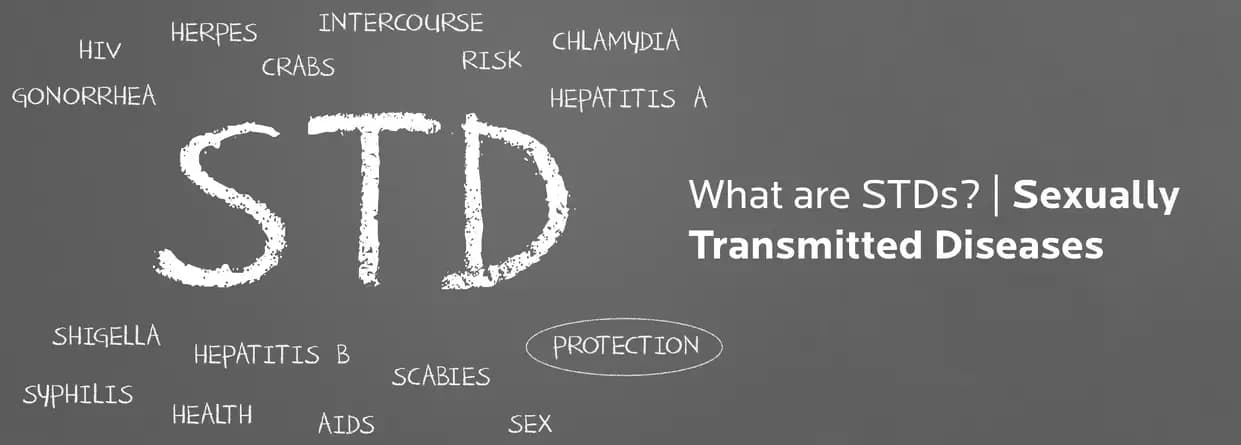
Do you experience STDs or sexually transmitted diseases often? STDs might not seem to be a serious condition in the beginning but later they can cause serious issues.
Do you experience STDs or sexually transmitted diseases often? STDs might not seem to be a serious condition in the beginning but later they can cause serious issues. These days the number of sexually transmitted diseases is increasing at a rapid rate as it commonly is acquired by sexual interaction with a partner or any individual. It requires timely attention so that it can be treated with the right medications.
If you are not aware of everything related to sexually transmitted diseases, such as symptoms, causes, diagnosis, and treatment, then we will discuss everything in detail here in this write-up, and for any severe information or treatment, you can also book an appointment with a leading gynecologist in Jaipur at RBH Hospital. Make sure to read till the end and be vigilant of the precautions you must take to prevent STDs in the future.
Sexually transmitted diseases are severe health conditions that occur when someone is involved in unprotected sexual intercourse with the partner. It is possible to acquire these diseases from any sort of sexual activity such as the vaginal, oral, etc.
Sexually transmitted diseases are considered a serious illness that requires treatment. With the right cure and medications, it can be treated and cured. However, if the problem is not treated on time, it can be recurrent and can also affect fertility and reproductive health.
Here are the types of sexually transmitted diseases one can suffer and might not be aware of it:
Some individuals might not see any sexually transmitted disease symptoms. The best way is getting tested often when someone is indulging in sexual intercourse regularly. There are also probabilities that you might already have it and have passed it on without knowing.
Look for these genital symptoms that can manifest:
The underlying reason of sexually transmitted diseases can be many such as:
The symptoms of the different STDs can sometimes overlap making it difficult to pinpoint a diagnosis. Therefore, doctors may need to carry out certain tests. Here are the tests they might recommend you:
The treatment of Sexually Transmitted Diseases can take various forms. It includes surgery, laser, oral or topical medications, and antibiotics.
The doctor will also ask you to make certain lifestyle changes like refraining from sexual intercourse until the treatment is complete. Timely STD treatment is critical because it can cause permanent damage to reproductive health. Some sexually transmitted diseases have no cure and management is the only solution.
Tips for Sexually transmitted diseases prevention
Prevention is the best cure when it comes to sexually transmitted diseases and infections. And, the surefire way to do that is avoiding regular sexual activity with multiple partners, or your partner for a while.
Here are some tips to prevent the risk of STD contraction:
Sexually transmitted diseases are one of the common health problems these days increasing at a rapid rate. STDs are usually treatable, but not all of them are completely curable. Some of the STDs can be life-threatening while some may have less serious effects. The best way to prevent them is regular screening and not indulging in unprotected sex. Make sure to seek treatment as soon as possible if you have tested positive for any sexually transmitted infections.
Antibiotics help in treating sexually transmitted diseases and there is no need for additional treatment. Antibiotics like ofloxacin, ciprofloxacin, cefixime or suprax, and ceftriaxone are generally recommended by the doctor.
There is a possibility that not all STDs go away on their own as some of them might need following regular medications. STDs can be long-term and can even stay for years, months, or days. If you think that the symptoms are not going away, make sure to speak to your healthcare provider.
Yes, one of the major signs of sexually transmitted diseases is itching. You can feel excessive burning sensations along with itching which becomes unbearable sometimes.
Females are found to be more susceptible to STDs than men when they indulge in sexual activity. It is due to the larger vaginal surface and vulnerability to sexual secretions.
Written and Verified by:

Dr. Tripti Dadhich is the Additional Director of Obstetrics & Gynaecology Dept. at CK Birla Hospital, Jaipur, with over 25 years of experience. She specializes in high-risk pregnancies, infertility treatments, and advanced gynecological surgeries.
Similar Obstetrics and Gynaecology Blogs
Book Your Appointment TODAY
© 2024 RBH Jaipur. All Rights Reserved.